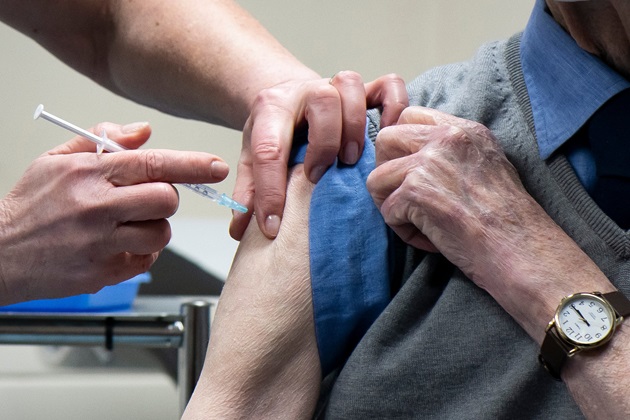We’re committed to supporting you to ensure vaccines are delivered safely so we can protect the public and build confidence in immunisation services.
So, we’re making sure you have all the up-to-date and evidenced information you need to help save those most vulnerable from the severe effects of COVID-19.
We asked Helen about the key issues.
Can nursing support workers give the COVID-19 vaccination?
Yes, in many areas, although we would expect that all staff, whatever their role in the programme, have appropriate education and training alongside a period of supervision and competency assessment.
If you're administering the vaccine, you will need to understand the vaccine being given, the injection process and the importance of informed consent, be able to recognise adverse events, and have ongoing supervision in the workplace by experienced vaccinators.
As this is such a large-scale vaccination programme, more people will be needed to complete the work, including those who weren’t involved in giving vaccines previously.
We support using an extended workforce in principle, providing people are appropriately supported including having appropriate training, assessment of skills and ongoing supervision. Changes to the Human Medicines Regulations (HMR) allow for this expansion of the workforce.
We expect that all staff have appropriate education and training alongside a period of supervision and competency assessment
For the RCN this expanded workforce will potentially include registered nurses, nursing associates (in England), assistant practitioners, nursing support workers and student nurse members on placement across the UK.
Nursing support workers in Northern Ireland are not currently supported to administer vaccines, although like their colleagues in the rest of the UK, as trusted health professionals they still have an essential role to play by supporting the clear and positive messaging around vaccination.
How will it work?
The legal authorisation process for the administration of the COVID-19 vaccine will be possible under a national protocol. This allows different members of the workforce to deliver specific tasks and functions.
Authorisation of the vaccines under a patient group direction or written instruction for those staff who can use them, will remain, as will using a prescription or patient specific direction.
We’ve designed a resource to signpost you to all the available information, guidance and relevant RCN positions on the UK COVID-19 vaccine programmes and I urge you to check it out.
Nursing staff must be a priority
The RCN has welcomed the approval of the COVID-19 vaccines at a time when nursing staff are working under intense pressure due to the ongoing pandemic.
Chief Executive & General Secretary Dame Donna Kinnair says:
“Health and care staff must be considered a priority alongside the clinically vulnerable, so that they may continue to safely care for their patients.
"This includes not only nursing staff working in care homes and hospitals, but also those working in primary and community care, many of whom will be delivering the vaccine itself.”
Ten tips for talking about vaccinations with patients
You are an important and trusted source of advice on vaccination and the approach you take is key:
- Remember the aim of the conversation is to gain trust and support people to hopefully accept vaccination.
- Raising the subject gives the message that this is important and gives people permission to ask questions.
- Ask questions to help understand the individual’s main concerns. Listen to them.
- Be empathic. Tell them you understand why they might be concerned and why they may have questions.
- Acknowledge we all want what’s best for ourselves and our loved ones.
- Avoid fact-filled lectures which could be counterproductive. Stick to the concerns raised and provide a limited number of main points in response, expressed simply.
- Focus on the risk to them. Many people have little experience of diseases because of the success of other vaccination programmes.
- Identify a myth as being false and focus on the benefits of vaccination while acknowledging the side effects of vaccines.
- Highlight the consensus among health professionals and scientists about the evidence in support of vaccination. Confirming that you’ve received the vaccine sets an important example.
- If people decide not to be vaccinated, be clear they can change their mind at any stage and leave the door open for further discussion.








